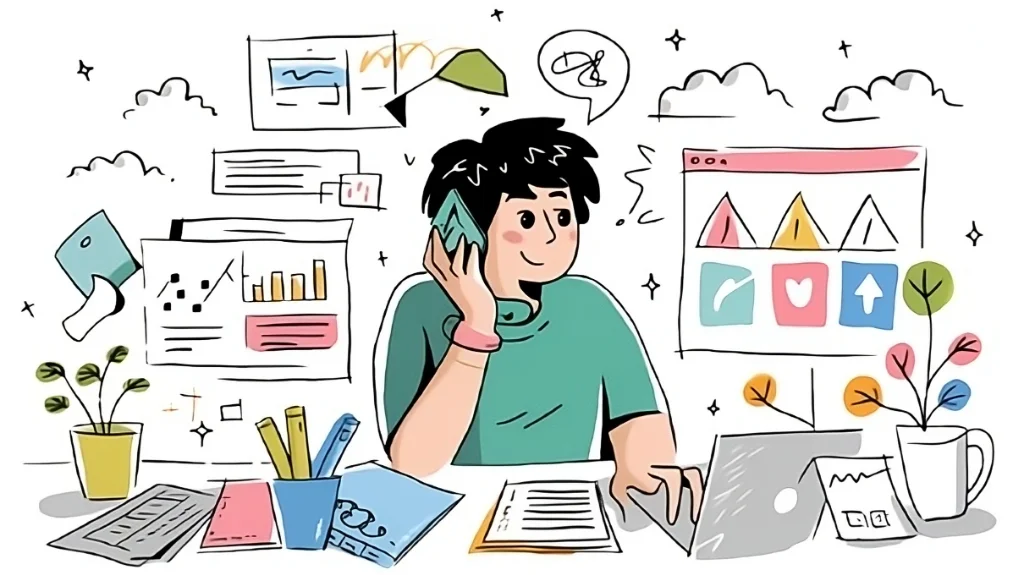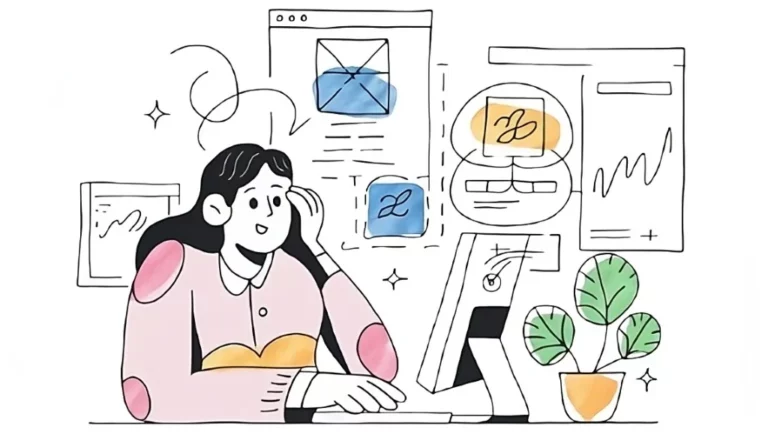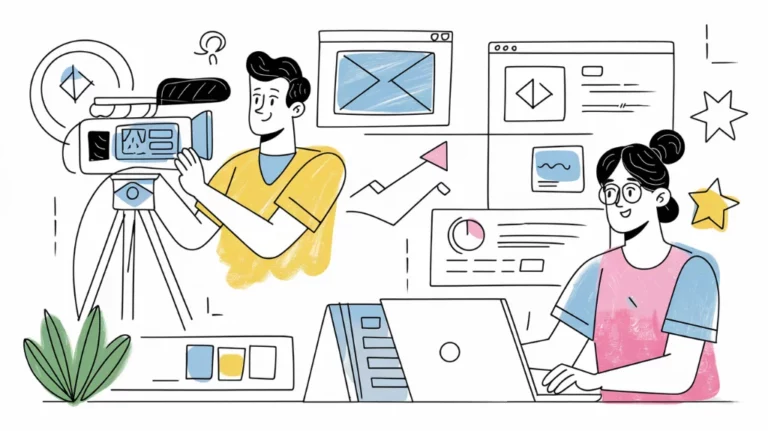John: Hey there! Starting your web development journey, huh? That’s awesome! What’s got you excited about this, and where do you think you'll begin?
Alex: Honestly, I’m totally new at this. I’ve been dreaming about making it my livelihood. Right now, I’m thinking of doing one-page designs for small businesses. No clue where to even start, though. Any advice?
Should You Start by Learning to Code?
John: Oof, the age-old debate! Honestly, learning to code is great if you want to go deep into web dev. Knowing HTML, CSS, and JavaScript gives you more control and makes you stand out. WordPress is mostly PHP, so some basic knowledge of that helps, too.
Alex: That sounds intense. How long does it even take to learn enough to make a website?
John: It depends... weeks to months if you’re dedicated. But listen, if you’re just starting and want to move fast, you don’t have to dive into coding right away. Tools like WordPress are excellent for beginners. They let you build stunning websites without a single line of code.
Alex: That sounds more like my speed. So, page builders are worth it?
John: Absolutely. Think of them like training wheels. Once you’re comfortable, you can decide if you want to graduate to full-on coding. Just don’t rely on them forever. Knowing the basics helps you troubleshoot and keeps your clients happy.
How Do You Find Clients as a Beginner?
Alex: Okay, so let’s say I’ve built a site using Elementor or something. How do I even sell it? Like, do I just hand over the login details?
John: Whoa, whoa! Back up a sec! You don’t just build a site and hope someone buys it. You find a client first.
Here’s how you can do it:
- Create a Portfolio: Make a couple of demo sites to showcase your one-page design skills. Pretend you’re building for a local coffee shop or a hair salon.
- Get Online: Put those demos on your own website. Use LinkedIn or even Instagram to share your work.
- Network: Join local meetups, online communities, or forums where small business owners hang out.
- Freelance Platforms: Try Fiverr or Upwork to get some gigs. You might have to start small, but it’s a great way to build experience.
What Should You Know About Hosting and Domains?
Alex: Got it! So, once I have a client, how do I handle stuff like domains and hosting?
John: Here’s the rundown:
- Domain Name: Your client will need to buy their domain. The easy thing would be to get the domain and hosting from the same provider. Unless you're using Vultr for hosting, in which case you get you domain name from Cloudflare.
- Hosting: Look for affordable options to start. Services like Hostinger, NameHero, or, my favorite, Vultr with Cyberpanel ($6/month!) are solid.
- Connecting the Dots: If not from the same provider, connect their domain to the hosting platform. There is usually a one-click install option for WordPress.
All these techy, simple and seemingly complex steps are shown in YouTube tutorials.
Should You Be Worried About Competition?
Alex: But isn’t this a super competitive field? What if someone does it cheaper or better?
John: Oh, for sure, it’s competitive. But don’t let that scare you! The key is to focus on value instead of price. Anyone can slap a website together, but not everyone can offer:
- Great communication.
- Websites that convert visitors into customers.
- Stellar customer service that brings repeat business.
Pro Tip: Don’t just build a site for the client. Think about their customers. That's who it's for. Ask yourself: “What would make a visitor click, call, or book an appointment?” If the website is not bringing clients in, you have not done your job well.
What If You Mess Up a Client’s Website?
Alex: Yikes. What if I mess up and it affects someone’s business?
John: Ah, the nightmare scenario! Look, mistakes happen, but you can avoid disasters by:
- Starting Small: Practice on demo sites or make websites for friends and family first.
- Backups: Always back up a site before making changes.
- Communication: Be upfront about your skills. If something’s beyond your expertise, admit it.
Also, make sure to research legal stuff. A simple contract outlining responsibilities and expectations can save you from a lawsuit.
How Do You Stay Motivated in Your First Year?
Alex: Any advice for staying sane while I figure all this out?
John: Oh, the first year will be a rollercoaster! You’ll get good clients and tough ones. Some projects will soar, and others... well, not so much. Here’s how to survive:
- Celebrate Small Wins: Built a site? High five yourself!
- Learn As You Go: Every mistake is a lesson.
- Don’t Compare Yourself: Someone out there will always seem better. Focus on your growth.
Most importantly: Stick with it! Web dev is 90% persistence and 10% talent.
Final Thoughts: Should You Take the Gamble?
Alex: So, should I really go for it?
John: Heck yeah! If this is something you’re passionate about, dive in. It’s a gamble, but one worth taking. Start small, stay curious, and don’t let fear stop you. And hey, if it doesn’t work out, you’ve still learned skills that can open other doors.
Oh, and one last thing — check your spelling. A typo on a client’s site? Instant bad vibes. Don’t let your “web dev” dreams crash because of a “wed dev” slip-up. Use spell checkers for text and proper capitalization for headlines.
Alex: Haha, noted! Thanks, John.
John: Anytime, Alex. You’ve got this!







